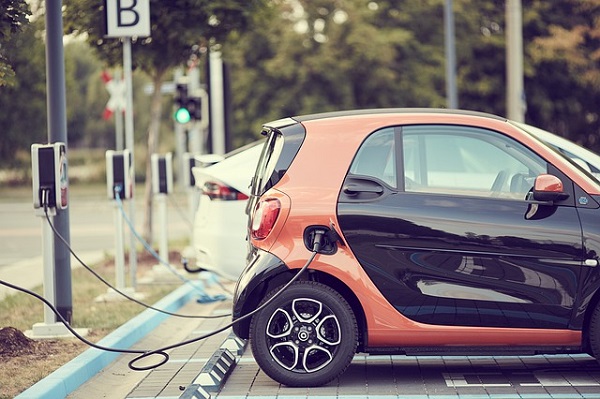 Credit: Pixabay
Credit: Pixabay
The Automobile Club of Luxembourg (ACL) recently reported on electric mobility trends in Luxembourg.
Over the past four years, there has been an increase in the number of electric vehicle registrations, including both hybrid and fully electric vehicles of various types (PHEV/BEV). These technologies accounted for almost 60% of cars registered in Luxembourg in 2024. At the same time, diesel vehicles have lost ground and accounted for only 13% of new registrations in 2024, down from 36% in 2020.
The ACL also noted that the differences between the various types of vehicles with engines featuring integrated electric components can be a barrier to a clear understanding of how they work. This complexity can present a real challenge when choosing a vehicle that suits one's driving style. The ACL acknowledged that all these different types of propulsion have their own advantages and disadvantages.
While economy and environmental friendliness are considered the most important criteria when choosing a drive, they are far not the only ones. The ACL found that the prices for recharging abroad, the shorter range in cold weather, etc. also play a major role. As such, consumers are advised against making any hasty decisions when choosing a vehicle, to ensure it fully meets their needs and wishes. For example, a mild hybrid electric vehicle (MHEV) can save between 5% and 10% fuel, but it is not capable of driving electrically on its own. A plug-in hybrid electric vehicle (PHEV), on the other hand, can cover between 35 km and 100 km using only the electric motor.
To help consumers make their choice, ACL experts Frank Maas and Loic Schiocchet carried out 120 technical expertise interventions in 2024. These included 36 workshops on this topic with almost 450 people in seven partner municipalities In addition, 84 mobility consultations helped people choose their new vehicle.
Moreover, the ACL recalled that various new vehicles will be heading to Luxembourg to take part in the upcoming "Autofestival", organised by the Fédération des Distributeurs Automobiles et de la Mobilité (Fédamo). The 61st edition of this car festival is taking place from Saturday 25 January to Monday 3 February 2025.
More than 50 new products are set to be previewed in over 170 showrooms and 90 dealerships across the Grand Duchy. This is considered a vital event for professionals in the industry, who generate around 35% of their annual sales in just two months.
The ACL noted that, last year, the SNCA registered 46,635 new cars, compared with 49,155 a year earlier. This represents a fall of 5.1%. However, Luxembourg appears to be following the trend in its neighbouring countries, which are also seeing falls in registrations: Germany was down by -1% compared to 2023 (but -25% compared to 2019), France announced a drop of -3.4% and Belgium of -6% compared to the previous year.
The 2024 figures also demonstrated an appetite for electric vehicles.
"More than one in four new cars was an electric car in 2024," said Manuel Ruggiu, Director of the SNCA. More specifically, 29.6% of new registrations last year were petrol-engined cars and 27.4% were 100% electric cars. These figures are on the rise. At 12,777 units, new 100% electric car registrations have even jumped by 15.5% in one year, and hybrids by 10.4%. Plug-in hybrids, on the other hand, are in free fall, with a 20.4% drop in new registrations.
The ACL attributed this general upward trend to continued subsidies, strong purchasing power and a network of charging points that is beginning to bear fruit. "In my opinion, this year’s biggest challenge will be to further improve access to a charging point so as to continue this trend, particularly in businesses and industrial and economic zones, as well as in homes," emphasised Philippe Mersch, President of Fédamo.
In Luxembourg, after petrol and 100% electric, 22.4% of new registrations were hybrids, 12.3% diesels and only 8.2% plug-in hybrids.
At European level, the trend is quite different, with electric car sales falling in fourteen of the 27 EU countries last November, their market share dropping from 16.3% to 15%, according to EY. In Germany alone, sales fell by 27.4% last year.
As a direct result of the rise in electric vehicles, but also of efforts to improve combustion engines, average emissions from new cars registered between 2014 and 2024 fell by 38.2% to an average of 99.3g of CO2/km.
The ACL added that Luxembourg's fleet remains relatively stable, with an increase of 0.8% to 457,185 cars with yellow plates. Including vans, the fleet stands at 500,073 vehicles, an increase of 0.8% in one year. The road car fleet comprises 43.3% petrol vehicles, 36.8% diesel, 9% hybrids, 7.1% 100% electric and 3.8% plug-in hybrids.
In terms of car type, the SNCA found that 43.1% of new registrations were of the "AC Family Estate" body type, including the Audi Q5, the Dacia Duster, the Renault Clio estate and the Passat estate.
In second place was the "AB hatchback" segment, with 29.4% of new registrations, and the "AF multi-purpose vehicle" segment, which includes the Citroën C3 Aircross, the Volvo XC90, the Fiat 600 and the Tesla Model Y.
The ACL recalld that the new electromobility support scheme came into force on 1 October 2024. The holding period will be increased to 36 months (from twelve months) and that the maximum premium for the purchase of an electric car will be capped at €6,000 (from €8,000) for vehicles whose electric energy consumption does not exceed 16 kWh/100 km. As a result, the level of support remains "very high", especially as the government has decided to introduce a €1,500 subsidy for second-hand electric vehicles to ensure that the electrification of the car fleet meets the targets set out in the PNEC.









